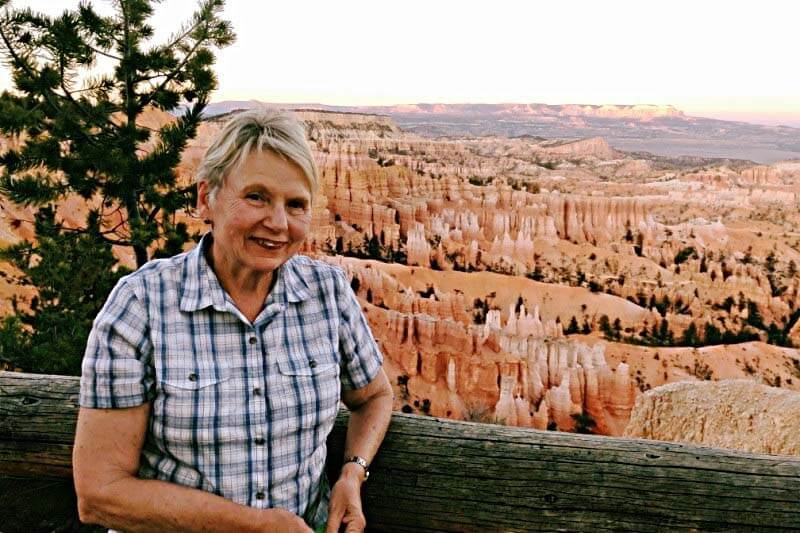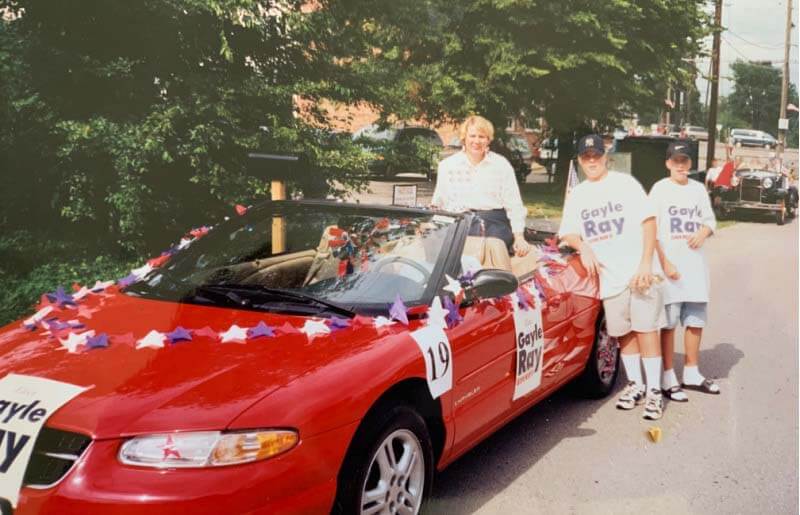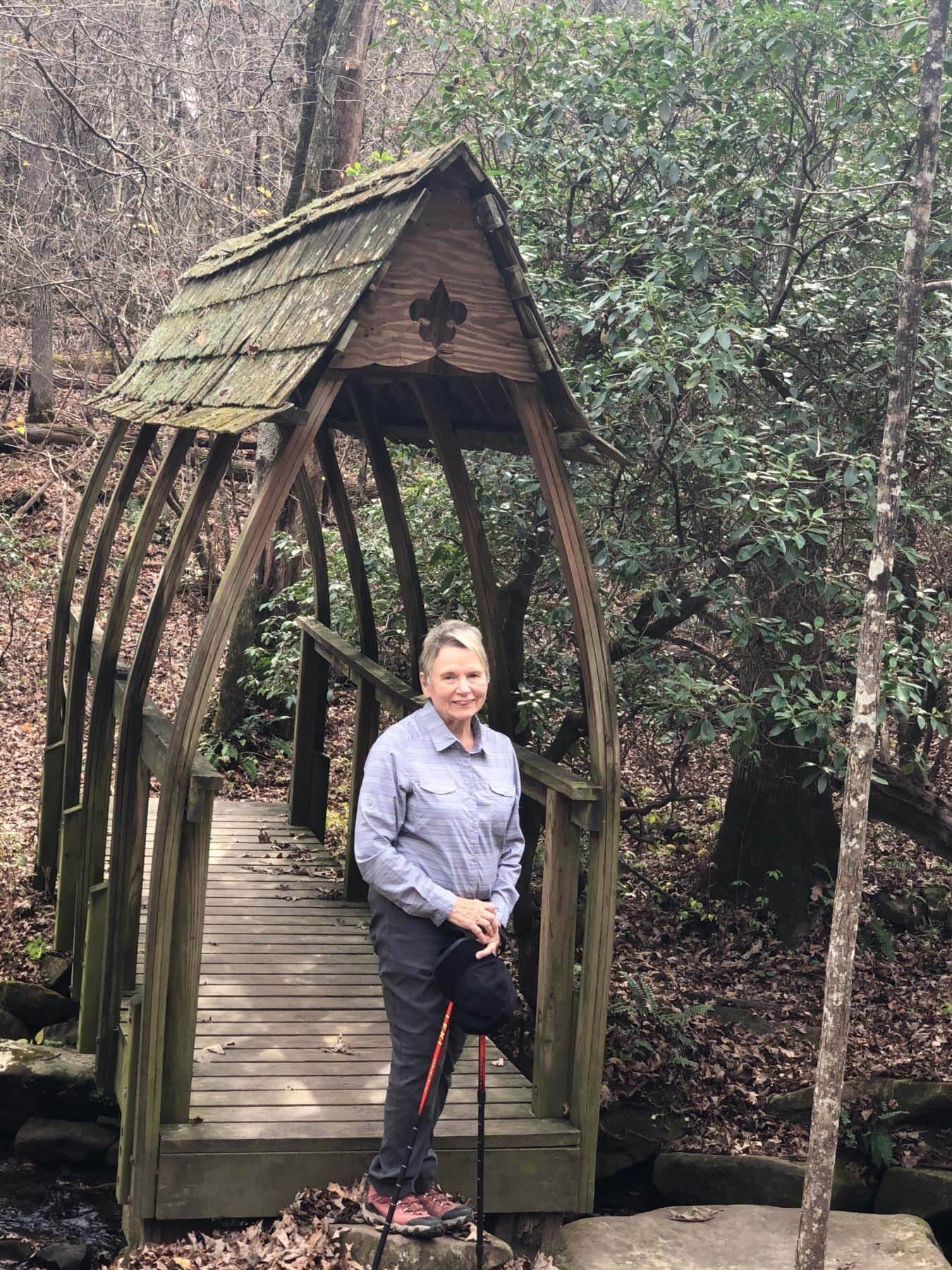A native Tennesseean who grew up in Murfreesboro, Gayle Ray is a pioneer in every sense of the word. As Nashville’s first female sheriff, a position she held from 1994 to 2002, she led a movement to further local mental health efforts and advocated for public education. Joining the ranks of the “good ol’ boys club,” she fought stereotypes, went on to become Deputy Commissioner of the Tennessee Department of Correction, and left a legacy that still impacts our community today. Please welcome former Nashville Sheriff and this week’s FACE of Nashville, Gayle Ray.

Can you tell us about your background?
My family goes back many generations to the early 1800s as far as being in Middle Tennessee. I stayed at home, got my bachelor’s in English at MTSU, and then went off to grad school at the University of Arkansas for my master’s Degree. I taught for a few years — English at LSU and then TSU, and I got married during that time and started having children.
I got very involved in advocacy for public education when my children were small. I was involved with the League of Women Voters and chaired the Education Committee, and later became president of the league. That advocacy for public education is what propelled me to run for Metro Council in 1991. There was a long-time incumbent councilman in my district, and I would try to call him to talk about public schools. He either didn’t answer or wasn’t interested, so that fired me up to run. About that time, I had also gone back to school and gotten my MBA at Belmont, so when I won the election, I was put on the budget and finance committee. I also chaired the Education Committee for Metro Council. It was at that juncture that I became aware of the Davidson County Sheriff’s Office. I had never paid attention to it before.

What was the current state of affairs when you took office?
We had a sheriff at the time who was in his first term — Sheriff Hank Hillin. He had quite a claim to fame because he had ousted the longtime Sheriff of Davidson County, “Fate” Thomas, and was actually instrumental in putting Fate Thomas in federal prison for using inmate labor and Metro funds for some of his activities. Hank Hillin was the white knight coming into the sheriff’s office to clean everything up, and he was going to save money and all of that. Phil Bredesen had just become mayor, and he was in a battle with Hank Hillin over the funding of the sheriff’s office. In his campaign, Hank said he would save a million dollars, but when he came to the metro budget and finance meetings, he actually asked for an additional million dollars. I’d been an English teacher and never thought much about corrections or law enforcement, but because of that and the constant turmoil surrounding the sheriff’s office, I had a wake-up-in-the-middle-of-the-night experience with a still small voice that said I needed to run for Sheriff. It took me aback. Needless to say, it’s not something that was on my radar, but that was a thought that just kept coming back. It entered my brain and wouldn’t go away. I’d always been a practical, logical person, but I felt this in my gut; it seemed like something I was really supposed to do.
RELATED: 13-Year-Old Hannah-Kate McFadden Spreads Political Positivity with The Candidate Pledge

What was your biggest inspiration for changing the system?
My biggest platform was running the office in a business-like way. There was nepotism because [Hank] had his son being chief deputy. There was a cook who was assigned an automobile and all kinds of questionable activities going on that were money-wasters.
My number one passion became reforming the problem of people with mental illness in jail, which I didn’t know anything about before I got into the job. I felt like my life had come full circle with education because we tripled the number of inmates in GED programs. For the first time, we had a Metro teacher teaching some of the inmates in jail and getting certified teachers in there. Daron Hall, who was my chief deputy at the time, has continued and expanded all of those things that we started during my tenure. I ended up chairing a statewide mental health criminal justice task force that came up with the idea of having mental health courts and trained criminal justice mental health coordinators who would work to find alternatives to incarceration for people who wouldn’t be in jail if not for mental illness. We brought the sheriff’s office into the 21st century with training, information systems, professional personnel management, and communicating a vision for the sheriff’s office.

What were the challenges of being Nashville’s first female sheriff and dealing with the “good ol’ boys club?”
I can honestly say that I didn’t have issues. I know it sounds crazy. I’ve thought about it a lot, and I think it’s because I “won” sheriff. If I was dealing with other sheriffs, there was respect for the fact that I was the sheriff just like they were. I had more education than the other sheriffs in Tennessee, but they certainly had me on practical experience. We just respected each other — that sounds kind of Pollyanna-ish, but it’s true. Initially, I probably encountered it more with my own employees, the majority of whom were men. It took a couple of years to get the bad apples out of the organization because there was no adherence to appropriate management or disciplinary procedures. It wasn’t widespread, but I learned that there were people who were beating up inmates in the dead of night. I was shocked to learn this because I had a certain amount of naivete going in. But then if I tried to fire, demote or discipline those people, I would encounter the civil service system because they’d never been disciplined before. When folks saw that I wasn’t going to put up with things that had been going on in the past, and I was going to adhere to high standards, that engendered respect from the people who I wanted to respect me.
RELATED: We Think She Has the Best Job Ever
What does retirement look like?
Currently, we’re living out in the country in Smith County on the Caney Fork River. Another one of my long-time interests and passions is the environment. We built a house with solar and rainwater collection and very high energy efficiency, and we’re growing a lot of our own food. That’s my main thrust right now. I’m still connected to my organizations and interests in Nashville, and fortunately, with the pandemic, everyone’s connecting virtually, so it’s easy for me. We just got [Google] Fiber out here in the middle of nowhere in Smith County!

What is the best piece of advice you’ve ever been given?
“Choose your words and actions very carefully — even mundane, everyday interactions with strangers — because you never know when you might have a profound effect on someone.
Outside of faith, family and friends, what are three things you can’t live without?
Books, music and art.
Thank you, Gayle, for your time! All photos provided by Gayle Ray.
**********
For more of the best people and places in the South, make sure to follow us on Instagram!


















